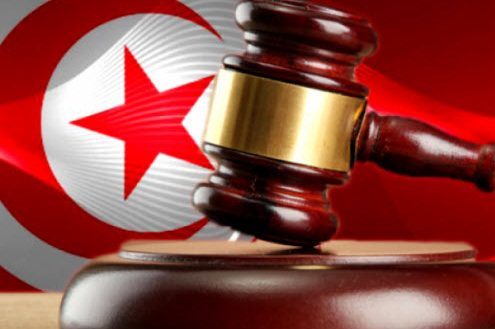
Apr 7, 2021 | News
Victims of gross human rights violations must be provided with effective reparations and guarantees of non-recurrence by Tunisia’s Specialized Criminal Chambers (SCC), judges and prosecutors asserted during a workshop held by the ICJ and the Association of Tunisian Magistrates (AMT) on 3 and 4 April.
The workshop highlighted the need for the SCC to adopt restitution, compensation, rehabilitation and satisfaction measures to achieve to the fullest extent possible reparation for material and moral damage suffered by victims of gross human rights violations in Tunisia.
Participants further emphasized that SCC decisions should include recommendations on guarantees of non-recurrence, including on legal and institutional reforms.
The workshop was attended by more than 25 Tunisian judges and prosecutors attached to the 13 Specialized Criminal Chambers. Discussions involved also international experts and ICJ representatives.
“It is important that the SCC, consistent with international standards, adopt a comprehensive notion of victims and persons entitled to reparation,” said Philippe Texier, ICJ Commissioner.
“In this respect, reparative measures should focus not only on direct victims, but also indirect victims, including the immediate family or dependants of the direct victim and persons who have suffered harm in intervening to assist victims,” he added.
Federico Andreu-Guzmán, international expert, noted the non-derogable nature of the right to reparation under international law and that SCC should seek to ensure that all their decisions comply with this right.
“SCC decisions should include wide-reaching recommendations in order to guarantee that the violations will not be repeated,” said Said Benarbia, Director of ICJ’s Middle East and North Africa Programme.
The workshop also offered the opportunity to participants to discuss a set of recommendations targeting the High Judicial Council and its role in supporting the SCC.
The recommendations, which were developed by a group of SCC judges and prosecutors following the ICJ’s roundtable of 13-14 March, aim to find joint approaches to address ongoing procedural obstacles before the SCC and will be subject of future meetings and roundtable discussions organized by the ICJ and the AMT.
Contact
Valentina Cadelo, Legal Adviser, ICJ Middle East and North Africa Programme, e: valentina.cadelo(a)icj.org
Asser Khattab, Research and Communications’ Officer, ICJ Middle East and North Africa Programme, e: asser.khattab(a)icj.org
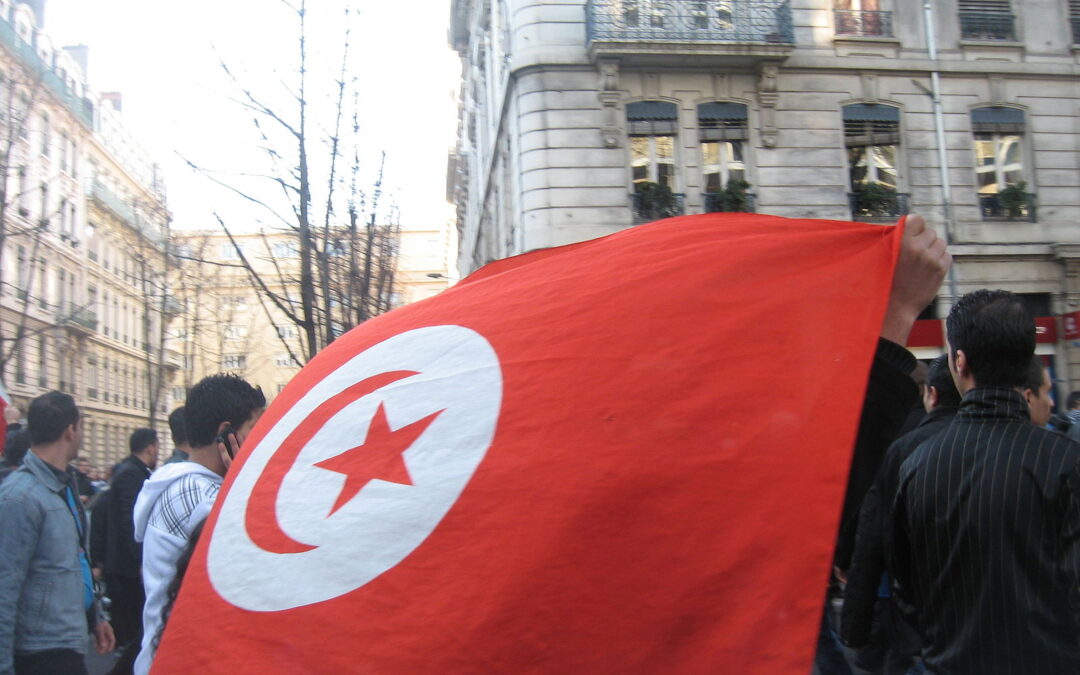
Mar 28, 2021 | News
The credibility of the criminal trials currently ongoing before Tunisia’s Specialised Criminal Chambers depends on their capacity to deliver justice and reparation to victims and their families in a manner consistent with international law, said more than 25 Tunisian lawyers and human rights defenders at a workshop organized with the ICJ and international experts.
The workshop, which was held in Tunis on 25 and 26 March, aimed at enhancing the capacity of participants to use international law in the preparation and litigation of cases before the Specialized Criminal Chambers (SCC) effectively.
The participants discussed the application of international law and standards relating to the notions of victims and persons entitled to reparation before the SCC. Participants also considered the various forms of reparation, including restitution, compensation, rehabilitation and satisfaction, and guarantees of non–repetition.
The workshop was attended by international and Tunisian experts, along with ICJ representatives.
The Director of ICJ’s Middle East and North Africa Programme, Said Benarbia, emphasized the importance of guaranteeing the right of victims to effective remedies and reparations, especially in transitional justice contexts.
Mondher Cherni, the Secretary–General of the Tunisian Organization Against Torture (OCTT), underlined that reparations must be comprehensive. “Tunisian courts should ensure the adoption of a comprehensive notion of harm, while addressing the violations suffered by victims in Tunisia,” he said.
Rachel Towers, Legal Advisor at Dignity (The Danish Institute Against Torture)highlighted that there is no justice without remedies and reparations; accordingly, Tunisia should ensure that victims of gross human rights violations may enjoy these rights effectively.
Clive Baldwin, Senior Legal Advisor at Human Rights Watch, said that “Tunisia is not only bound to punish and sanction gross human rights violations, but also to prevent them from occurring in the future.” Baldwin also emphasized the importance of providing a comprehensive set of guarantees of non–repetition, including legislative and institutional reforms aiming to ensure effective civilian control of military and security forces and the independence of the judiciary.
Participants also addressed the lack of compliance in law and practice of the Tunisian transitional justice framework with international law and standards.
“The functioning and delivery of transitional justice in Tunisia has been enduring numerous and complex challenges over the last years,”said Benarbia.“The Tunisian authorities should immediately respond to these challenges with a holistic action plan, based on concrete reforms and solutions” Benarbia added.
Contact
Valentina Cadelo, Legal Adviser, ICJ Middle East and North Africa Programme, e: valentina.cadelo(a)icj.org
Asser Khattab, Research and Communications’ Officer, ICJ Middle East and North Africa Programme, e: asser.khattab(a)icj.org
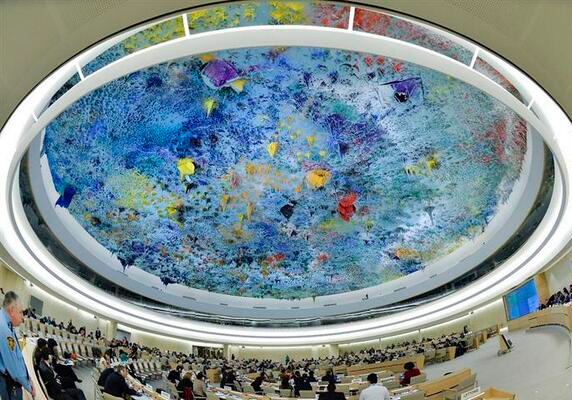
Mar 26, 2021 | News
In a joint communication to five United Nations Special Procedures, the ICJ and its partners urged the mandate holders to call on the Tunisian authorities to immediately stop hampering the transitional justice process.
The organizations expressed their concern at the ongoing attempts to undermine the transitional justice process and accountability efforts for past gross human rights violations.
“The Tunisian transitional justice process has been under serious attack since its inception in 2013. Today, the ICJ and its partners are urging the United Nations Special Procedures to take urgent action to deter such attacks, demand justice for the victims and secure accountability for the perpetrators,” said the Director of ICJ’s Middle East and North Africa Programme, Said Benarbia.
The joint communication highlights the following areas of concern:
- The recent political initiatives to dismantle the transitional justice process;
- The incessant attacks against the Truth and Dignity Commission (Instance Verité et Dignité, IVD) and its 2018 final report’s findings;
- The lack of support to the Specialized Criminal Chambers (SCC) and the numerous obstacles that risk to severely impair access to justice and effective remedies for victims of gross human rights violations.
The communication is addressed to the following United Nations Special Procedures:
- The Special Rapporteur on the promotion of truth, justice, reparation and guarantees of non-recurrence;
- The Special Rapporteur on torture and other cruel, inhuman or degrading treatment or punishment;
- The Special Rapporteur on the independence of judges and lawyers;
- The Working Group on Arbitrary Detention; and
- The Working Group on Enforced or Involuntary Disappearances.
The communication was submitted jointly by the ICJ along with:
- The World Organisation Against Torture (OMCT)
- The Ligue tunisienne des droits de l’homme (LTDH)
- The Forum Tunisien pour les Droits Economiques et Sociaux (FTDES)
- Avocats Sans Frontières (ASF)
- The Association of Tunisian Magistrates (AMT)
- Al Bawsla
- International Alert
- The Association KARAMA
- The Association INSAF pour les anciens militaires
- No Peace Without Justice
- The Organisation Contre la Torture en Tunisie (OCTT)
- The Organisation Dhekra we Wafa, pour le martyr de la liberté Nabil Barakati
- The Coalition Tunisienne pour la Dignité et la Réhabilitation
- The Association Tunisienne pour la Défense des Libertés Individuelles
- The Association des Femmes Tunisiennes pour la Recherche sur le Développement
- The Association Internationale pour le Soutien aux Prisonniers Politiques
- The Réseau tunisien de la justice transitionnelle
Contact
Valentina Cadelo, Legal Adviser, ICJ Middle East and North Africa Programme, e: valentina.cadelo(a)icj.org
Asser Khattab, Research and Communications’ Officer, ICJ Middle East and North Africa Programme, e: asser.khattab(a)icj.org
Download
Tunisia-Special-Procedures-Joint-Submission-2021 (PDF, in French)
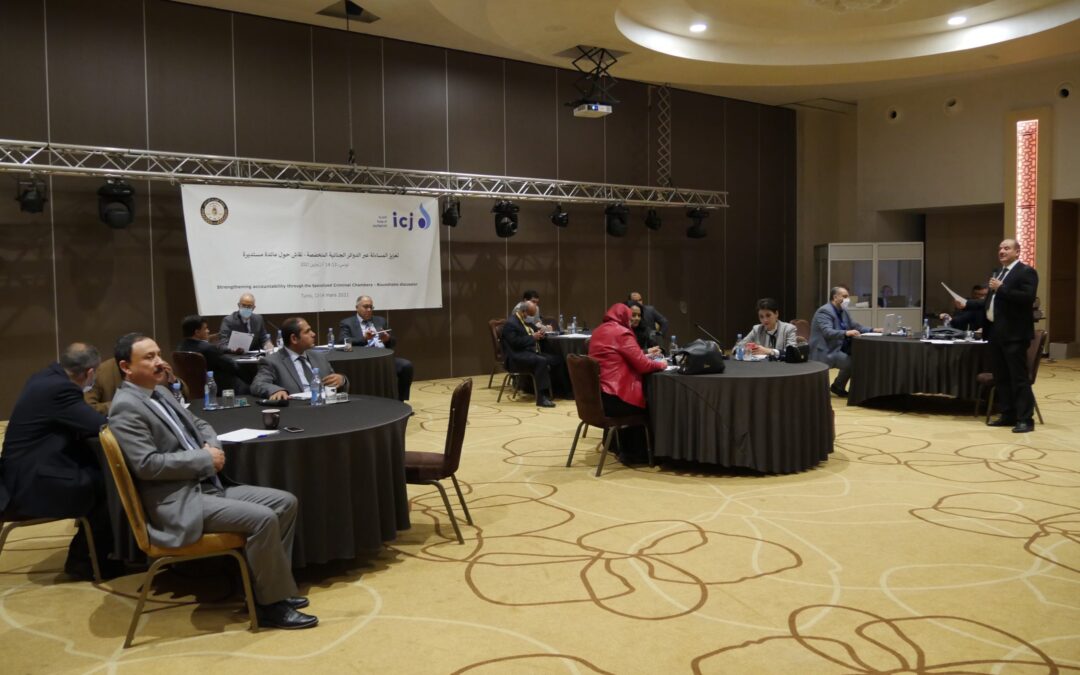
Mar 19, 2021 | Advocacy, News
On 13 and 14 March 2021, the ICJ and the Association of Tunisian Magistrates (AMT) organized a roundtable discussion in Tunis to assist Specialized Criminal Chambers (SCC) judges and prosecutors to advance accountability and justice in line with international law and standards.
Participants discussed in-depth the ongoing challenges to the fair and effective prosecution and adjudication of gross human rights violations before the SCC. They also examined joint approaches to address these challenges with a view to enhancing the fairness and effectiveness of the SCC proceedings and achieving accountability in turn.
At the roundtable, Said Benarbia, ICJ’s MENA ProgrammeDirector, underlined that SCC trials should enable victims to obtain redress and reparation, while ensuring the defendants’ right to a fair trial in compliance with Tunisia’s obligations under international law. Anas Hmedi, the President of the AMT, highlighted the key role that the SCC play in relation to the discovery of the truth, accountability and guarantees of non-recurrence of gross human rights violations in Tunisia.
Martine Comte, ICJ France Commissioner,stressed the importance of finding joint approaches and reinforcing coordination among the SCC to address the various challenges that that they are currently facing. Kalthoum Kennou, ICJ Tunisia Commissioner, called for the development ofjoint approaches to ensure victims’ participation at SCC trials and enhance support for the transitional justice process.
In light of the roundtable discussion, participants identified joint solutions and agreed to develop a set of recommendations targeting the High Judicial Council and its role in supporting the SCC and resolving the practical obstacles that might impede their work.
The roundtable is part of the ICJ’s efforts to enhance the SCC’s capacity to adjudicate the cases referred to them by the Truth and Dignity Commission (IVD) in a manner consistent with international law and standards.
Contact
Valentina Cadelo, Legal Adviser, ICJ Middle East and North Africa Programme, e: valentina.cadelo(a)icj.org
Asser Khattab, Research and Communications’ Officer, ICJ Middle East and North Africa Programme, e: asser.khattab(a)icj.org
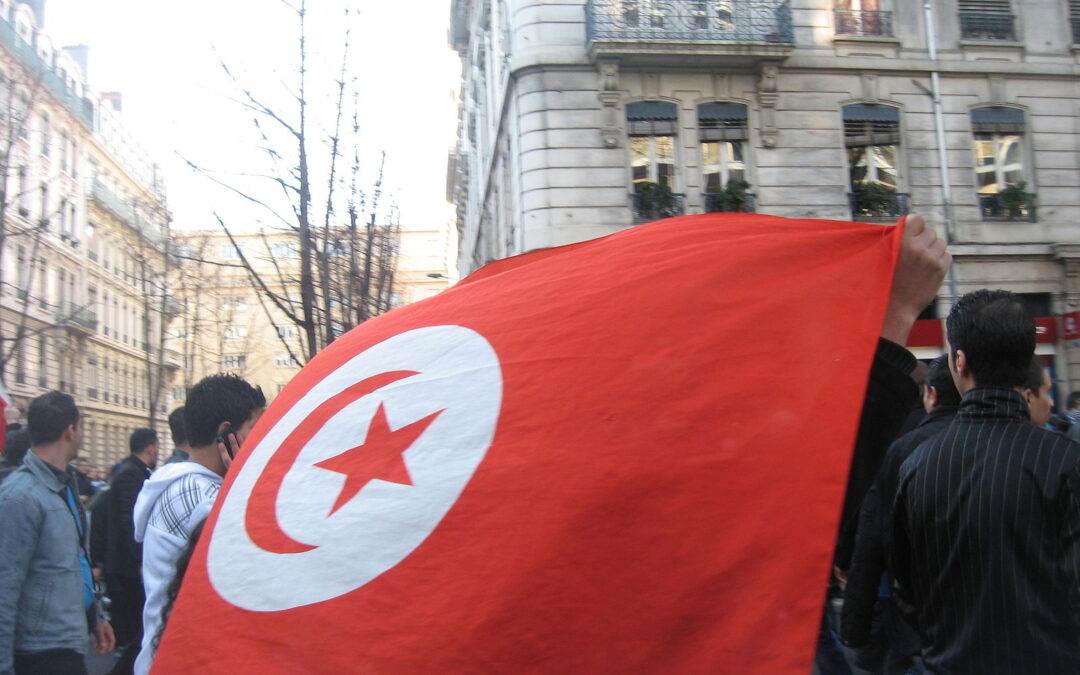
Mar 9, 2021 | News
Tunisian authorities must respect the rights to freedom of expression, association and peaceful assembly, and stop the systematic targeting of protesters, lawyers and civil society activists, said the ICJ today.
البيان الصحفي باللغة العربية مرفق أدناه
Since the outbreak of social justice protests on 15 January 2021, Tunisian security forces have systematically targeted protesters, including minors, lawyers and civil society activists.
Over the last weeks, reports of abuses at the hands of the Tunisian security forces have included: hundreds of arbitrary arrests; deaths in custody in disputed circumstances; physical assaults; rape and death threats; and refusing detainees access to legal counsel. While to date more than half of the people arrested since the beginning of the protests have been released, only a few prosecutions arising from the security forces’ systematic campaign of arrests have taken place, and hundreds of people are still in custody awaiting to be brought before a judge. According to the information available to the ICJ, individuals are being prosecuted under different charges, including “insulting the police” and “abuse of morals”.
“The systematic targeting of peaceful protesters and the other abuses that we have witnessed in recent weeks are clear instances of the wider impunity that Tunisian security forces have continued to enjoy over decades,” said Said Benarbia, the ICJ’s MENA Programme Director
“The Tunisian authorities should immediately halt these practices by reforming the country’s security legislation and open independent and impartial investigations into these abuses.”
To date, Tunisia has failed to adopt a comprehensive reform of its security legislation in line with the Constitution and the country’s obligations under international human rights law and standards.
As reported on multiple occasions, investigations into reports of human rights violations by Tunisian security forces have rarely led to successful prosecutions of perpetrators in the past. Moreover, while since 2018 prosecutions arising from police abuses committed under the previous regime have started before the Specialized Criminal Chambers, numerous obstacles continue to affect the progress of trials, and no verdict has been delivered to date.
“It is time for the Tunisian authorities to abide by the Constitution and international human rights law and standards and commit to a complete end to the security forces’ oppressive practices,” Benarbia added.
“Only by undertaking a full review of Tunisia’s security laws and bringing perpetrators of human rights violations to justice will the country be able to break this cycle of abuses and ensure full respect for fundamental freedoms and human rights.”
Contact
Said Benarbia, Director, ICJ Middle East and North Africa Programme, t: +41-22-979-3817; e: said.benarbia(a)icj.org
Valentina Cadelo, Legal Adviser, ICJ Middle East and North Africa Programme, e: valentina.cadelo(a)icj.org
Asser Khattab, Research and Communications’ Officer, ICJ Middle East and North Africa Programme, e: asser.khattab(a)icj.org
Download
Press release in English and Arabic.









